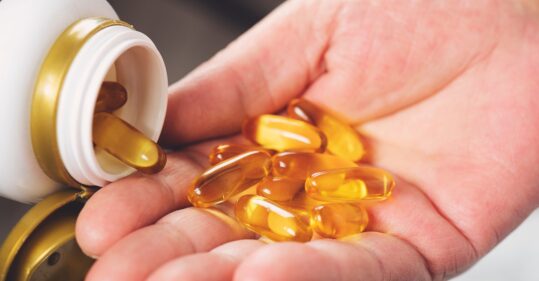‘More research needed on vitamin D’s effectiveness in treating Covid’

There is not enough evidence to support taking vitamin D solely to treat or prevent Covid-19, NICE, PHE and the Scientific Advisory Committee on Nutrition said in rapid guidelines published today.
But they supported current government advice for everyone to take the supplement throughout autumn and winter, following a rapid evidence review of the use of vitamin D during the pandemic.
The guidance advises healthcare professionals ‘not to offer vitamin D supplements to people solely to [prevent or treat] Covid-19, except as part of a clinical trial’.
Related Article: Weight loss medication is no magic wand
However, it also underlines that people should be encouraged ‘to follow the UK government advice on taking a vitamin D supplement to maintain bone and muscle health’.
The document says: ‘[The panel] expressed concerns that not everyone is aware of, or is following, UK government advice on taking a vitamin D supplement, so wanted to include a recommendation to emphasise the existing guidance.
‘They stressed that everyone should consider taking a supplement containing 10 micrograms (400 units) of vitamin D daily between October and early March, when people in the UK do not make enough vitamin D from sunlight.’
The guidance also recommends more research is carried out into ‘the clinical effectiveness of vitamin D supplements for treating Covid-19 in adults, young people and children’ because ‘of the lack of reliable evidence of the effects on the supplement’.
It suggests ‘randomised controlled trials in all care settings with a minimum 8-week follow up’ and ‘a particular focus on subgroup analyses’ such as age, ethnicity and comorbidities associated with poorer outcomes in people with Covid-19.
The panel also agreed that there is a need for research into vitamin D supplementation for preventing Covid-19. They found ‘low vitamin D status was associated with more severe outcomes from Covid-19′, but stressed it is ‘difficult to know if low vitamin D status causes poorer outcomes or vice versa’.
Related Article: Prescribing in England to be led by a single national formulary
Director of the Centre for Guidelines at NICE Dr Paul Chrisp said: ‘While there is insufficient evidence to recommend vitamin D for the prevention or treatment of Covid-19 at this time, we encourage people to follow government advice on taking the supplement throughout the autumn and winter period.
‘As research continues on the impact of vitamin D on Covid-19, we are continuing to monitor evidence as it is published and will review and update the guidance if necessary.’
The guidance follows a study published yesterday by the University of South Australia that found ‘alarmingly high’ levels of vitamin D deficiency in the UK.
Of almost half a million people surveyed, 57% of Asians and 38.5% of black Africans living in the UK are severely deficient in vitamin D in winter and spring. White Europeans were the least affected at 17.5%.
Related Article: Advice on Guillain-Barré risk for adult RSV vaccine updated by MHRA
The study authors suggested this was because the higher levels of melanin in darker skin lessens the skin’s ability to make vitamin D – combined with spending more time indoors during the pandemic.

See how our symptom tool can help you make better sense of patient presentations
Click here to search a symptom




